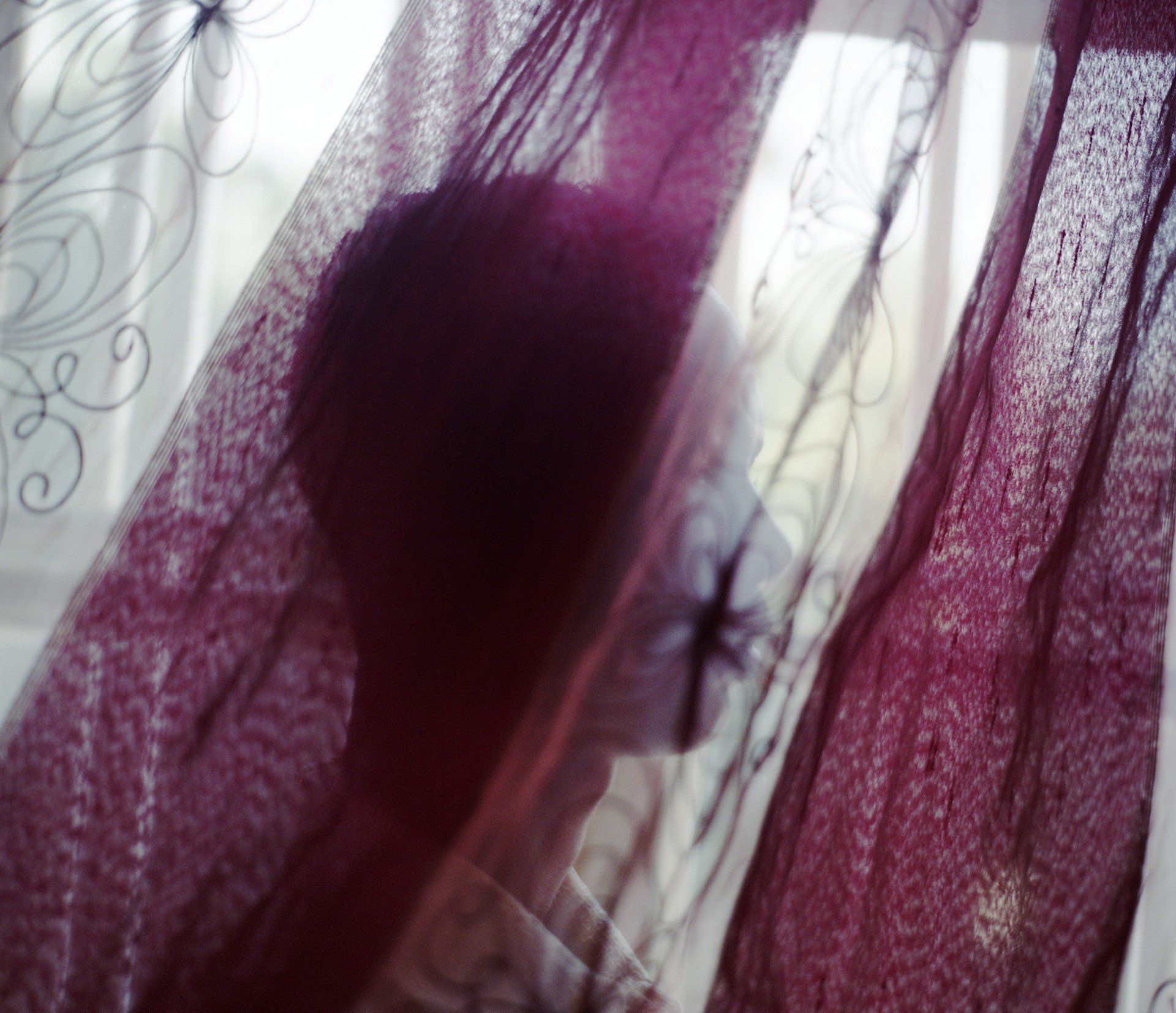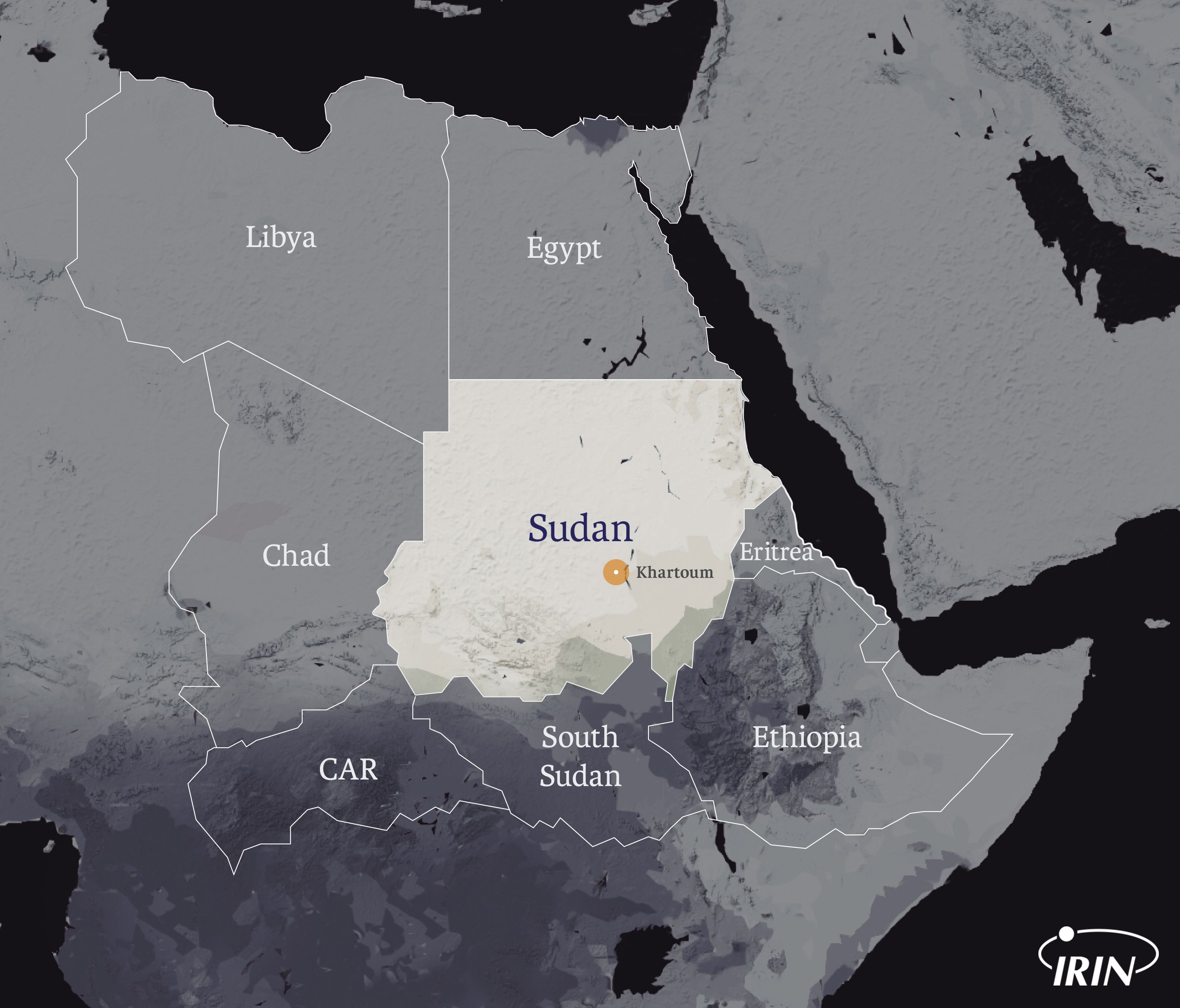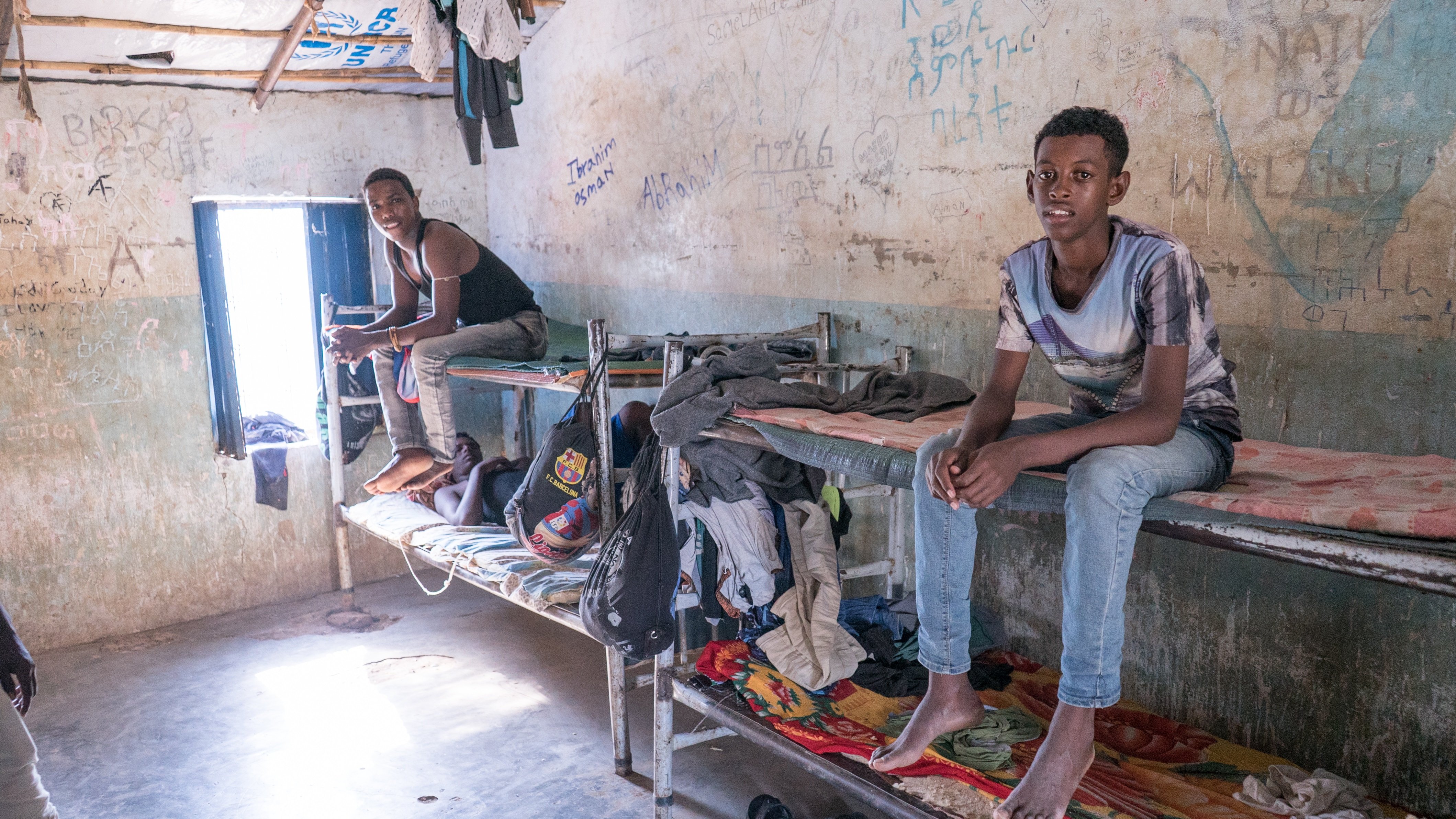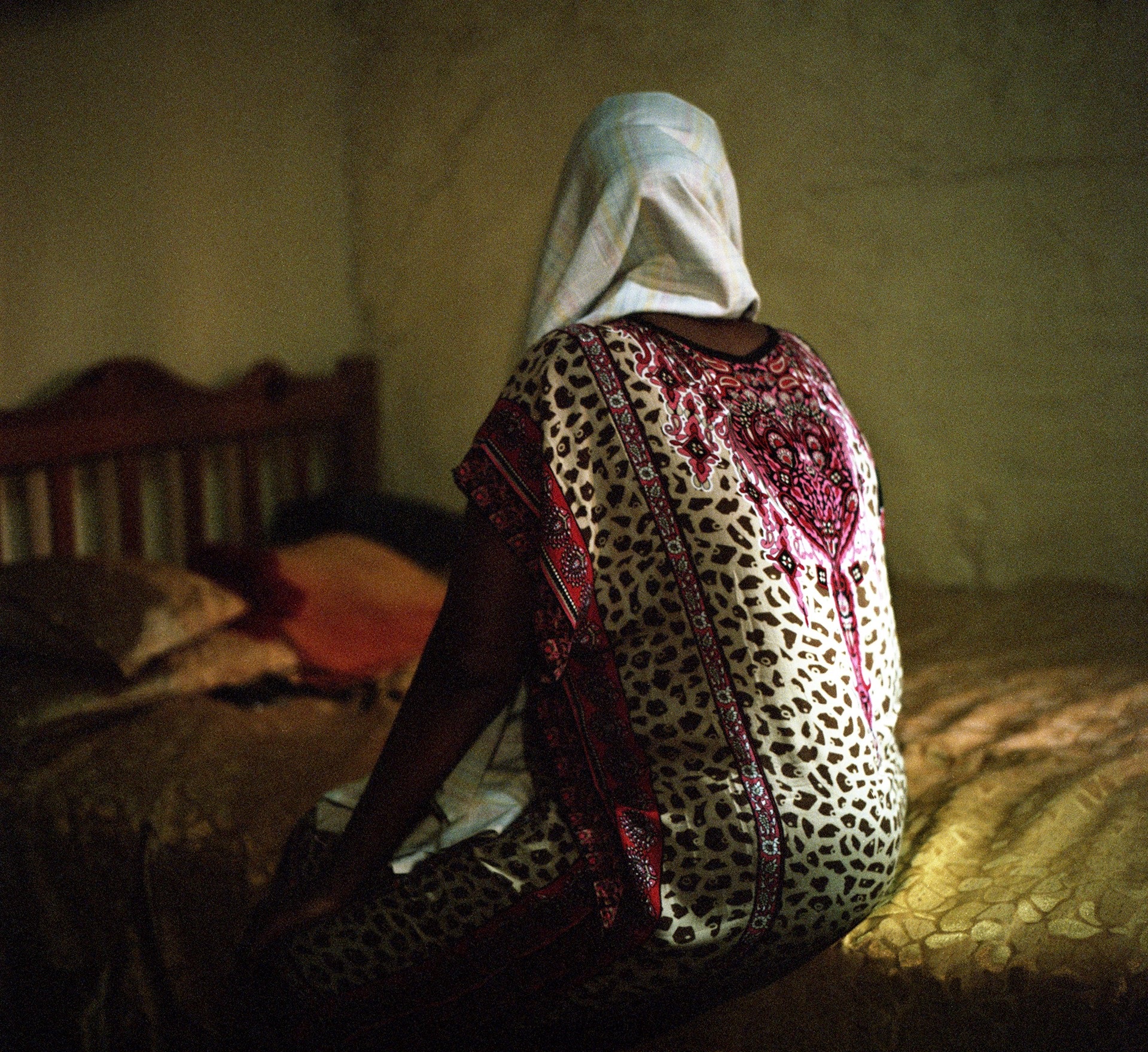As millions of dollars in EU funds flow into Sudan to stem African migration, asylum seekers say they are increasingly trapped, living in a perpetual state of fear and exploitation in this key transit country.
In interviews with over 25 Eritrean and Ethiopian asylum seekers in Khartoum and the eastern city of Kassala, as well as local journalists, and lawyers working on behalf of refugees, IRIN has documented allegations of endemic police abuse, including extortion, violence, and sexual assault.
The pattern of corruption and rights violations uncovered feeds into broader concerns over whether the EU’s migration policies are making a difficult situation worse.
Across Sudan's capital, Khartoum, some 30,000 Eritrean, Ethiopian, and other African refugees are crammed into decrepit, non-descript houses, waiting for their chance to escape the country and make it to Europe.
Sudan’s previously porous northern border with Libya has become increasingly dangerous to cross after Sudanese President Omar al-Bashir deployed the former Janjaweed – a paramilitary group implicated in war crimes during the Darfur conflict – in 2015 as border guards.
This militia, re-named the Rapid Support Forces (RSF) and integrated into Sudan’s army in January 2017, arrests asylum seekers and hands them over to the police, who detain, fine, and deport them for illegal entry – regardless of whether returning them to their countries will result in torture or imprisonment.
Tortured for money
The Shagarab refugee camp appears out of nowhere, a sprawling, dusty settlement in eastern Sudan near the Eritrean border, two hours by road from the main town of Kassala, through a series of tightly controlled checkpoints that require police permission to pass.
Some 40,000 refugees, primarily Eritreans, are registered at Shagarab, but it feels deserted. For many Eritreans, the camp is only a temporary stop for two or three months before the next stages of their journey, on to Khartoum, and then on to Libya or Egypt, before the final goal of Europe.
Inside Shagarab’s centre for unaccompanied minors, teenagers watch TV and stay glued to their mobile phones, eager to be in contact with the outside world. But some have experienced awful abuse at the hands of traffickers as they escaped from Eritrea – one of the world’s most oppressive states – and into Sudan.
Dawit*, 17, fled Eritrea to escape military conscription – in a country where unpaid army service can last for years – travelling first to Ethiopia and then hiring smugglers to take him into Sudan.
He couldn’t pay the smugglers up front, and so once inside Sudan was trafficked and held for ransom in Hajer, a town almost all Eritrean refugees interviewed by IRIN mentioned as a place to avoid.
“Sudanese smugglers tortured us for the payment,” said Dawit. “They stripped us naked and beat us with whips while our families were on the [telephone] line. New arrivals had two-three days after arrival to pay before being beaten.
“Those who had been there longer were beaten every day. The women fared even worse – men would come, pick them out, and take them away. When they returned, they were bleeding and crying.”
Dawit said that after being held for five days, the smugglers got a call warning them that there was about to be a police raid, and they all escaped.
The tip-off is entirely in keeping with numerous accounts of the involvement of Sudanese officials in the trafficking industry.

A history of migration
Sudan has long been a transit country for Eritreans and others on the move, as well as a country people flee from.
Sudan’s increasing criminalisation of refugees and migrants, as well as conditions in Libya, where the EU backs the Libyan coastguard to capture refugees at sea and return them to detention centres, have contributed to a steep drop in the number of people arriving in Italy.
In 2016, 40,773 refugees and migrants from the Horn of Africa arrived in Italy; in 2017, only 8,688 people made it.
Yet young Eritrean men and women in Khartoum and Kassala told IRIN they had no intention of remaining in Sudan, despite being aware of the risks of using smugglers to take them through Libya and Egypt, where they can experience torture and death.
Some said they would wait for new, safer routes to open, while others were working as maids and daily labourers to raise enough money to start the journey as soon as possible.
“When I came from Eritrea, I was kidnapped for two weeks. I didn’t know where I was, and I was raped many times. So, nothing [worse] will happen to me. All of us left our families behind,” said a young Eritrean woman in Khartoum. “We’ll take the risk of going to Europe.”
Over the past two years, the EU has allocated more than $200 million in migration-related funds to Sudan, part of its broader strategy to outsource migration control to third countries.
EU financing for border management includes training and equipment for border police, capacity building for the judiciary, and legal reforms to encourage increased arrests and prosecution of traffickers and smugglers.
This support is despite the fact that the Sudanese government has for years been condemned for its human rights record – al-Bashir has an outstanding arrest warrant for crimes against humanity issued by the International Criminal Court.
The EU sidesteps accusations it is working with Sudan’s repressive security apparatus by arguing that it doesn’t fund the government directly, rather it funnels its aid through international organisations, including UN agencies.
But these EU partners are willing to work with controversial arms of the Sudanese government.
For example, the UN refugee agency, UNHCR, confirmed to IRIN it has provided motorbikes in Kassala to the National Intelligence and Security Service (NISS) – a spy service responsible for the arrest, torture, and detention of human rights activists and the government’s political opponents.
Extortion and abuse
In densely populated Khartoum neighbourhoods like al-Geraif and al-Daim, groups of 10 to 15 Eritrean refugees live in sub-divided shanty houses. Rooms are occupied by entire families or as many as eight single young men and women at a time.
Many rely on donations from family members abroad to afford food, children’s school fees, and other basic expenses. Those without family support are destitute, eating only one meal a day, without access to proper sanitation or medical care.
Filmon, 21, arrived in Sudan in November 2016 from Ginda, Eritrea. He shares a dirty, cramped room with five other young men. Until recently, it lacked a latrine.
“Life in Khartoum is very hard. I don’t get enough money or good work and it’s not a safe area,” he told IRIN. “I’ve been asked [by the police] about my cards, my refugee card, regularly. I think about going to Europe through Libya – I have no choice,” he said.
Although Sudan has a policy that refugees must live in camps, the majority of Eritreans either stop in them just long enough to claim asylum status and collect an identification card, or head directly for Khartoum. Many have travelled with smugglers, and some have experienced trafficking, violence, and sexual assault crossing into Sudan or once inside.
In Khartoum, they find a prison of a different kind. Refugees report being terrorised by the police, who enter their neighbourhoods – sometimes in the middle of the night – and extort and detain people for not having ID cards. Cash and valuables are routinely stolen.
Sara is a bubbly young Eritrean woman who attends henna training classes. She told IRIN how she was arrested on the street for not having her refugee card, and at the police station was offered a choice: “If you want to be free, you will have sex with us.”
Sara, who was 17 at the time, narrowly avoided being raped because her 19-year-old female companion went with the policemen instead.

Feeding corruption
Each month, police funnel hundreds of refugees and migrants through courts in Khartoum, where they are charged with violating Sudan’s Passport and Immigration Act and fined the equivalent of $360.
If they do not pay the fines, they are deported to their home country, usually without having the opportunity to consult a lawyer or claim asylum, even though some may have experienced violence, torture, and other acts in Sudan or in their home countries that could qualify them.
Hundreds of Eritreans have been extradited over the past two years, including some who were registered as refugees. Deporting an asylum seeker back to the country they fled from and where they face persecution is known as refoulement, and it is a violation of the UN Refugee Convention.
Lawyers working to represent refugees in court before they are extradited describe a justice system that is just as corrupt as the police force.
“In many cases the traffickers are let go because they have police officers as [defence] witnesses,” said Khalid, a lawyer working in Khartoum. “There are trials where 250 refugees are arrested, and each one is fined. It happens so fast – the process of being arrested, the trial and the conviction – and the judge and the police force responsible get a cut of the money. These judges are the same ones who were trained by the British embassy.”
The Khartoum Process
Europe’s focus on curbing migration from Sudan began in November 2014, with the launch of the Khartoum Process – a dialogue between the EU and Horn of Africa countries to combat trafficking and smuggling. It initially emphasised protection and human rights, but in operation its focus has been a law enforcement response to migration.
In 2015, Brussels created a special pot of money – the EU Emergency Trust Fund for Africa – to assist the Khartoum Process in addressing the root causes of migration and fighting trafficking and smuggling.
An Oxfam analysis found that of the €400 million allocated through the fund, only three percent went towards developing safe and regular routes for migration. The bulk was spent on migration control.
Police Lieutenant General Awad al-Neel Dahiya, head of the Ministry of Interior Passports and Civil Registry Authority and a key interlocutor for the EU’s migration efforts, believes the focus is justified.
“As a matter of fact, we have very long borders – 7,000 kilometres plus,” he told IRIN. “Compared to our resources, it is very difficult to control – maybe we can be assisted by technology, so we can control the influx, as well as those going out – whether its Sudanese [people or people from] other countries passing through Sudan.”

But Sudanese specialists say the EU is operating on the flawed assumption that the government is sincere in wanting to end the lucrative trafficking business.
“There is a lack of political will from the Sudanese government to fight trafficking,” Rifat Makawi, another lawyer in Khartoum, explained. “Creating new policies and drafting laws is just done by the government to please Western countries. On the ground, nothing changes.”
A recent report from the Regional Mixed Migration Secretariat noted that despite the flurry of anti-smuggling and trafficking efforts, new smuggling routes continue to open across the Horn, with Eritrean and Sudanese smuggling networks gaining influence.
One estimate puts the profits of the smuggling business on the northwestern route from the Horn of Africa to Europe at approximately $203 million in 2016.
An uncomfortable alliance
The US State Department’s 2017 Trafficking in Persons Report concludes that Sudan “does not fully meet the minimum standards for the elimination of trafficking and is not making significant efforts to do so.”
Human Rights Watch has accused the security forces, including the RSF, of colluding with human traffickers and smugglers rather than investigating them.
The EU’s interest in managing migration has precipitated a sharp shift in how member countries engage with Khartoum. For years, European governments avoided dealing with al-Bashir because of the ICC arrest warrant and his rights record, but there has been something of a sea change.
The UK is now engaged in a biannual “strategic dialogue” focused on migration, trade, and counter-terrorism. Italy has signed a policing agreement on trafficking, irregular immigration and terrorism; and Norway is discussing an agreement to facilitate easier deportation of Sudanese asylum seekers. Belgium recently allowed Sudanese security officials to vet asylum-seekers; those who were then deported back to Sudan were detained, interrogated and tortured.
Michael Aron, the UK ambassador to Sudan, said the EU can influence police behaviour through dialogue. “There are people we talk to in the police who are definitely trying to do the right thing,” he explained. “We should be helping the good guys so they can increase their influence over decision-making and gradually get the situation more under control.”
Meanwhile, over the past three years, the Sudanese government has made it clear it expects the EU to provide funds and equipment for its migration control efforts.
The head of the RSF, Mohamed Hamdan, regularly boasts about the RSF’s role in assisting the EU. He recently told Al Jazeera: “[The EU] lose[s] millions in fighting migration, that's why [it has] to support us."
The EU ambassador to the Sudan, Jean-Michel Dumond, rejects criticism of Europe’s relationship with Khartoum. “We have been accused of all the sins of the world, and it’s quite clear we have never cooperated with the RSF – we have no link,” he told IRIN. “[EU] aid is given [under] very clear conditions.”
Meanwhile, former border control officials from European countries are arriving in Khartoum as consultants, replacing development experts in some international agencies. One of the latest EU-funded projects is a Regional Command Center in Khartoum (ROCK), to be run by Civipol out of the Sudanese police training compound.
“The migration issue is becoming like the Darfur crisis, it’s a business,” said Fatima, a Sudanese journalist covering migration who also pointed to the creation of numerous new government charities that have started turning up at migration-related meetings. “Everyone wants a piece of the pie,” she added.
“Where to keep them?”
Yusef, an Eritrean refugee, tried to head to Europe in 2014 via Libya, but was returned to the Sudanese border by a militia in Libya. There, he was arrested, along with hundreds of other refugees.
The Sudanese border guards brought Yusef to the northern town of Dongola that now serves as an informal detention facility for refugees captured at the border.
On the three-day journey, Yusef alleges that over 50 people died from lack of food, water, and medical care. Their pleas for help went unanswered. “We told them our friends are dying, are thirsty, hungry, suffering. They don’t protect you,” he told IRIN.
In Dongola, Yusef was kept in a large compound along with hundreds of other people. Eight Bangladeshi men in the facility paid and were immediately released, along with a number of Somalis and Sudanese. But the Eritreans and Ethiopians were detained for a month.
Yusef said he counted nine people who died due to lack of medical care. Representatives of the UN visited – a team of four foreigners with an Eritrean translator – and told the inmates that if they had a refugee card they could go back to the Shagarab refugee camp in eastern Sudan, or else they would be deported.
Yusef had a refugee card but did not trust the UN or the Sudanese government to protect him. To avoid being sent back to Eritrea, where he could likely face torture and imprisonment, Yusef claimed to be Ethiopian. He was deported to Ethiopia, and crossed back into Sudan a few weeks later.
Monitoring from afar
The EU is now planning to work in Dongola through its flagship Better Migration Management project, a $46 million regional programme run by the German Agency for International Cooperation (GIZ), in partnership with the International Organization on Migration (IOM), Italian police and Civipol, a consulting wing of the French ministry of interior, among other organisations.
“The proposal came from us, because we have nowhere to keep people,” said Dahiya, the head of Sudan’s Ministry of Interior Passports and Civil Registry Authority. “Every month we have to intercept almost 100 or sometimes 500 irregular migrants; we have to process their return and their protection – it gives us real challenges – where to keep them?”

According to the UK ambassador, BMM will set-up a centre in Dongola to help receive the arrested refugees and migrants. But it’s not clear how human rights abuses will be monitored, especially somewhere where there are no international NGOs or observers at present.
Martin Weiss, the BMM project head in Germany, insists the programme aims to protect migrants.
“BMM is not about border surveillance, but about protecting refugees, facilitating migration, and improving conditions for people who are fleeing their homes,” he wrote in an email. “At present, many refugees are vulnerable to violence, slavery or rape. We want to provide an effective response to the problem.”
But the EU and its partners don’t appear to have a viable strategy to mitigate human rights abuses. In the case of the BMM project, the EU and GIZ claim that its steering committee – composed of the European Commission, Germany, UK, France, Italy, and the Netherlands – oversees human rights risks remotely from Brussels.
“The steering committee has a clear view of what is possible and what is not possible,” said Dumond, “and we don’t think there is a big risk [of human rights violations as a result of EU funding].”
He added that EU officials frequently go on mission in Sudan to assess conditions first-hand.
But such visits are tightly controlled by the government and the security services. When IRIN visited Shagarab, for example, police and NISS officers followed, transcribing every interview.
The EU and GIZ also declined to show country specific budgets for Sudan for the BMM programme. That opacity is a way to escape “accountability and scrutiny”, explained Giulia Laganà, a migration specialist at the Open Society European Policy Institute, via email.
Rethink needed
The situation Yusef faced in Eritrea forced him to leave. Stricter border controls did not deter him in striving for a better life, and neither did the rights abuses he encountered. Yet there is no indication the EU is open to adjusting its migration management strategy in the face of mounting criticism that its approach in Sudan is not only ineffective but also causing harm.
“The real root causes of migration are very complex,” said Dumond. “You cannot hope to address all these problems and have quick solutions in a few months.”
But a new report from the International Refugee Rights Initiative, The Strategic Initiative for Women in the Horn of Africa (SIHA), and The Centre for Human Rights Law at SOAS, University of London, argues that a re-think is urgently needed.
“As barriers are created without sufficient alternatives being offered, people are taking greater and greater risks and journeys are becoming increasingly dangerous,” the study found. “The only people benefitting … are the smugglers and traffickers.”
Caitlin L. Chandler reported from Sudan with a fellowship from the International Reporting Project (IRP)
*To protect their identities, sources referred to by a first name only have had their names changed.





